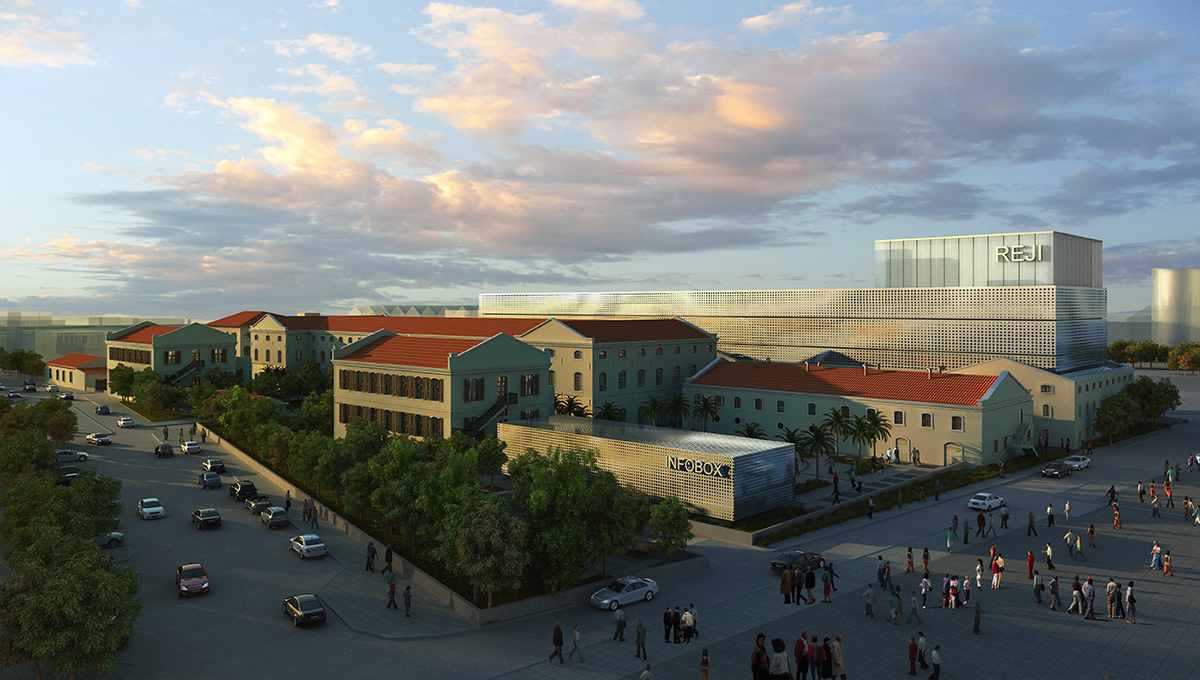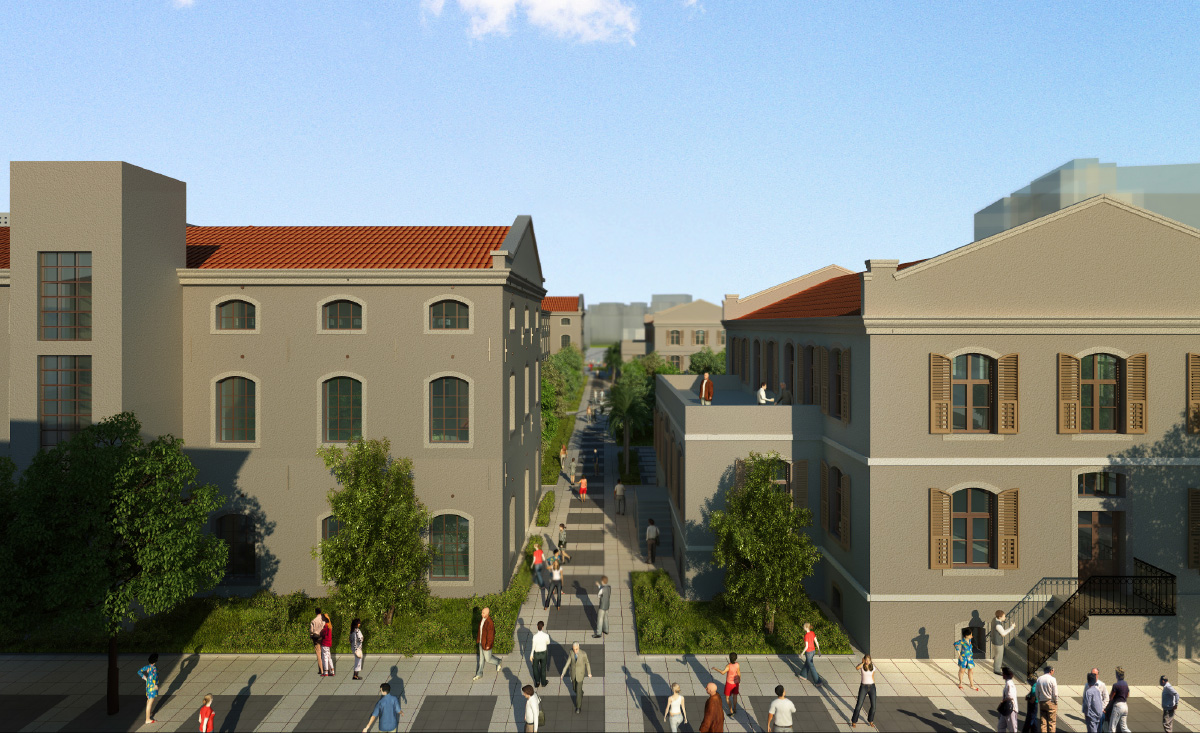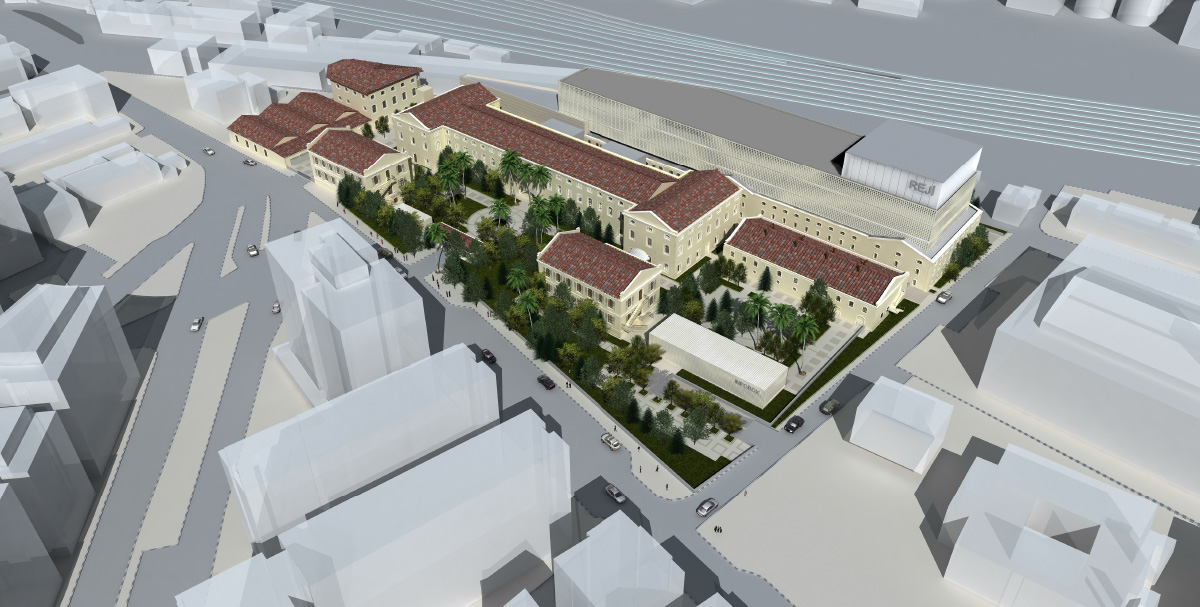One of the most important units of Reji, a company which produced tobacco–the leading import item of the time- throughout the 19th century under the control of the Administration of Public Debt (Duyun-u Umumiye Idaresi), was a factory founded in 1884 in the Alsancak district of Izmir. The Alsancak complex is a unique industrial establishment, defined by 12 buildings of varying sizes.
Its close proximity to the Torbali axis, which is one of the major dynamics of urban development, grants the complex with a particular significance. The classicist approach in spatial organization, defined by the main buildings in the factory’s layout plans, demonstrates a sense of arrangement that is in harmony with the period’s industrial structures and their measures of principle. The subtle monumentalism of the main building, unique to grand industrial structures and the level of attention in the organization of minor buildings help create a cohesive image.
The restoration of the historical Reji Tobacco Factory as a multi-functional cultural complex through repairs will be a great value for Izmir. The main buildings in the complex, whose core structure has not been spoiled by auxiliary buildings, have been protected; however, the severely damaged minor buildings which once functioned as service and support units were redesigned in partnership with Tasarimevi according to the demands of a cultural centre.
This intervention model, which is very protective of the core concept, does not only allow the complex to sustain its cohesive image but also claims to set an example for vitalizing historical heritage. A concert venue has been created by keeping in place the baselines of the service and support buildings which were constructed much later at the back of the factory. Such functions as youth centre, book sales, cafes and restaurants have been introduced to historical buildings under conservation through repairs with the expectation that they will contribute to the social life of the city.




